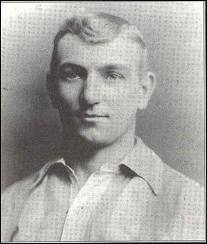
Queen Victoria died in January 1901. A matter of months later came the first significant footballing appearance of the name Chapman. “Chapman H.”, once of Worksop, had trialled for Grimsby Town in 1898, but it was the inclusion of that name on a list of triallists at Sheffield Wednesday that marked his break into the sporting big-time.
Chapman was a local boy, son to an illiterate coal miner living in a nearby village called Kiveton Park. He was born in 1879, at the height of Sheffield’s period of innovation and influence in football.
Football was to Sheffield what racing was to Newmarket, long before Liverpool or Manchester had any real part in it. In 1878, Bramall Lane, home to both Sheffield Wednesday and Sheffield United at times, saw the world’s first floodlit match, a game attended by 20,000 spectators. The FA Cup Final in London could only attract 5,000 that year. Sheffield was home to the first cup tournament – the Youdan Cup – and some of England’s oldest sporting clubs were based in the city(Sheffield Wednesday had already been in existence for 47 years when it introduced football to its cricketing members).
Mention of Worksop and Grimsby make it clear that even in the game’s earliest years, it was far from inevitable that talented players would end up playing for their local clubs. Chapman’s own brother would play for Sheffield United, but also Swindon Town, Tottenham, Notts County and Northampton.
Chapman was a dashing, hard-shooting centre-forward. His time at Sheffield Wednesday was to prove the club’s golden age. When the club won the Football League title in 1903, breaking the Sunderland/Aston Villa stranglehold, it wasn’t their first success. They’d won the League in 1892, the FA Cup in 1896, and had the distinction of losing 6-1 in the 1890 Final, still the second worst defeat in a Final. Nor was it Sheffield’s first. Sheffield United had a League title from 1898, and an FA Cup from 1902.
But it did mark the end of the great Villa/Sunderland days, which would never really return for either club. Wednesday won the title again in 1904. The highlight of Chapman’s playing career came in 1907, when he was made man of the match after his superlative performance in the 2-1 FA Cup Final victory over Everton.
Chapman would play on for several more seasons, chalking up about 15 in total, a reasonable number for the time. He wouldn’t have been far from an England call-up at his peak, perhaps only kept out by the likes of Steve Bloomer.
Those Wednesday fans who as adolescents begged Chapman’s cigarette card off their elder brothers would have been remembering him to their infant grandchildren during the Korean War; the oldest of them would have lived to see Maradona’s Hand of God goal in 1986. Any film of Chapman playing will be tucked away unpublicised at the British Film Institute Archive, if it exists.
But the Chapman name isn’t famous for goals and memorable performances. After injury and ill health ended his playing career, “Chapman H.” , by now a father of three, became a manager, of his last playing club, Hull City, in 1913. And it’s for management…
But “Chapman of Wednesday,” as he was described in his pomp, died of tuberculosis in 1916, aged 36. He died at his brother Herbert’s home in Leeds. And this is going to be Herbert’s story.
You sold a nice dummy there, James.
Interesting stuff